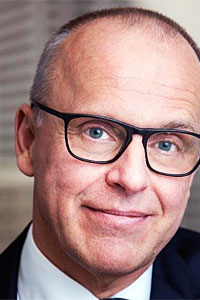According to the World Health Organisation, one in three women worldwide will experience sexual abuse in her lifetime. Thailand is no exception. On any given day in 2013, 87 Thai women and girls fell victim to physical abuse. As a senior public health official put it, that is one person every 15 minutes. Sadly, most of the attackers were the victim's intimate partner, friend, or family member.
The picture is the same throughout Southeast Asia, which has the highest percentage of gender-based violence in the world -- 38%. But violence against women is clearly a worldwide scourge. The results of a 2014 European survey showed that 33% of women in European Union countries have experienced physical or sexual violence since the age of 15. In my own country Sweden, where considerable efforts are made to counter gender-based violence, more women now feel in a position to report that they have been exposed to violence. This is an important development, given the high level of under-reporting of gender-based violence worldwide. However, also in Sweden, far too many women still experience violence.
Violence against women is not an isolated act, but rather forms a pattern of behaviour that severely violates human rights of women and girls. Evidence shows that violence damages their rights to (physical and mental) health and wellbeing and, as a consequence, limits their ability to participate in society on equal terms with men.

In many countries, physical and sexual violence against girls and women is implicitly tolerated by society.
In some settings, police regard domestic violence as a "family matter" rather than the serious crime that it is. In many cases, victims hesitate to ask for help due to the stigma society places on them.
The International Day for the Elimination of Violence against Women today marks the starting point for 16 days of campaigning against gender-based violence until the UN Human Rights Day on Dec 10.
The right to a life free from violence is fundamental for all women and girls, and we should each ask ourselves how we can eliminate violence against them. Violence is preventable and men's engagement is necessary as part of the solution. (Much more effort must be made to meet this goal, especially by men.)
I feel this responsibility strongly, both in my official capacity as ambassador and on a personal level -- as a man, husband, and father of two daughters.
Many more men need to speak out clearly and consistently in favour of gender equality, in favour of women's rights and particularly in favour of their right to a life free from violence -- and free from fear of violence. Change is urgently needed. But change can only happen if men and boys join these worldwide efforts to stop violence against women.
This year, the countries of the world agreed to step up these efforts. At the UN General Assembly in New York, world leaders came together to adopt the 2030 Agenda for Sustainable Development, making a unified pledge to free humanity from poverty and act in collaborative ways to heal our planet.
Gender equality is fully integrated into the joint action agenda of 17 Sustainable Development Goals, and Goal 5 signifies a commitment to end all forms of discrimination against women and girls and eliminate all forms of violence against women and girls in both the public and private spheres.
In this spirit, the Embassy of Sweden in Bangkok is joining HeForShe, a solidarity movement for gender equality launched by UN Women.
We are not alone. Many of our colleagues around the world have done the same, as has our Prime Minister Stefan Löfven and all male members of his cabinet.
In Southeast Asia, President Jokowi Widodo of Indonesia and President Benigno Aquino of the Philippines have declared their support for this undertaking. The commitment is very simple:
"I am one of billions of men who believe equality for women is a basic human right that benefits us all. And I commit to taking action against gender discrimination and violence in order to build a more just and equal world."
A simple message for sure. But if it is followed by all of us it would literally change the world.
I would like to appeal to male readers of this article to take the same action. With your support, we can help reduce the number of Thai girls and women who will experience sexual or physical abuses in her lifetime. The goal is to bring it down to zero.
This goal can be realised if men step up and speak out against violence and take action. Not only on this day, but all the other 364 days as well.
Staffan Herrström is the ambassador of Sweden to Thailand.
